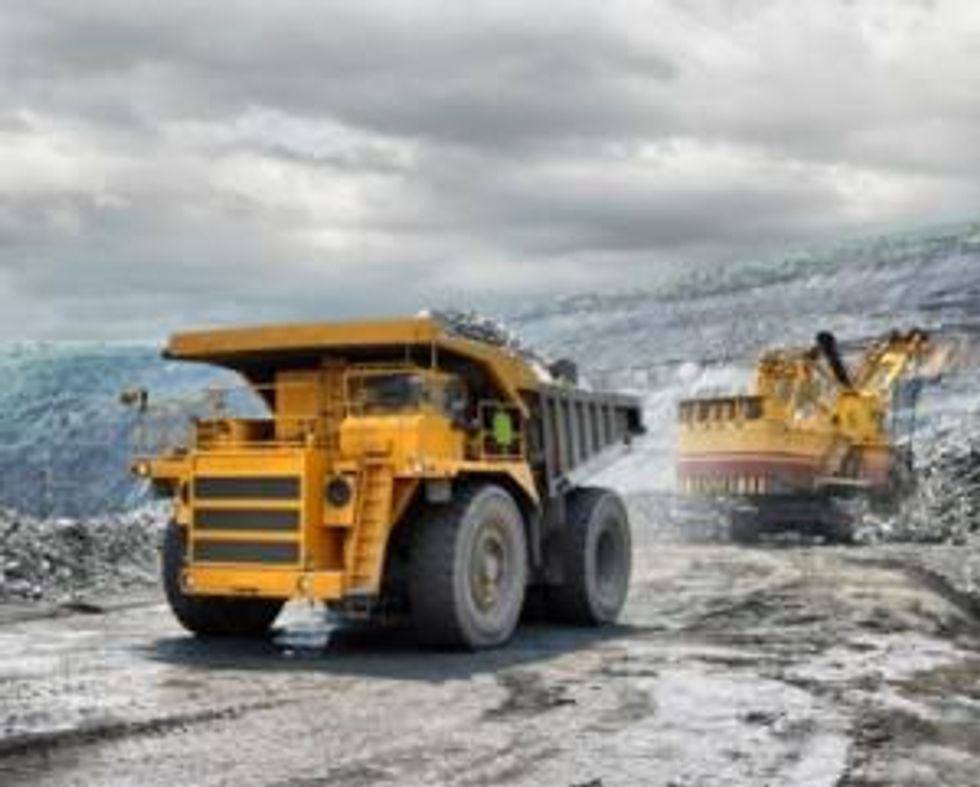Centaurus Metals announced the addition of an iron ore exploration deal adjacent to its existing Candonga DSO project in Brazil.
Centaurus has secured an initial six-month option on the 11,786-hectare project for the payment of $300,000 real (AU$140,000). It has the ability to extend it to a total of two years for an additional $500,000 real, and then a$1-million real fee if the option is exercised and the title is transferred. Should Centaurus commence production from any of the leases, a production bonus of US$1.5 million will be payable.
While not cheap for an early stage exploration play, the deal payments are weighted toward the back end, providing time for the project’s potential to be assessed.
On the basis of sampling, Centaurus has placed a conceptual exploration target on the project of between 3.5 and 8 million tonnes of high-grade DSO ore over 64 percent iron, with a larger tonnage of underlying lower-grade itabirite. The geology seems to be the standard Proterozoic banded iron formations that are common through Eastern and Northern Brazil, with localized surficial weathering to high-grade DSO ore. The degree of enrichment is not on par with the giant systems of Carajas or the Iron Quadrilateral, but pockets of surficial high-grade ore are common in the region and generally of high quality, albeit small in size. Work is to commence almost immediately, with continued sampling, aeromagnetic surveys and drilling.
The rationale for the deal is clearly one of adding cheap tonnes. Centaurus is currently well advanced in approvals for a small, 300,000-tonne-per-annum iron ore operation at its 100-percent-owned Candonga project, which it hopes to have in production by Q2 2015. While small, the project can be developed at a very low capital cost of only AU$3.6 million, and so is probably fundable even in these difficult markets, offering the company a vital lifeline into cash flow. Candonga, however, is small, with a DSO reserve of only 1.2 million tonnes at 60.5 percent iron; it thus has a limited life, currently estimated at between three and five years of small-scale production. The addition of this new project, 8 kilometers via good road from the planned Candonga plant, is a clear attempt to beef up the resource and extend that mine life as cheaply as possible.
Up until mid-2014, the company’s primary focus was the larger Jambreiro iron ore project, which had advanced through full feasibility and permitting for 3 million tonnes per annum. But in June 2014, Centaurus announced that it was putting the project on hold due to lack of development funding, a decision that in hindsight probably saved the company.
While a reasonably low-cost project, Jambreiro suffered, like many such projects in Brazil, from lack of transport infrastructure. With limited access to rail and port, the initial years of the Jambreiro development were instead predicated on selling iron ore at the mine gate to local steel mills, at a price less than half the seaborne benchmark at the time. Centaurus had planned to fund the development with a large debt component, but in order to provide this funding, banks demanded firm life-of-mine offtake contracts for the product — contracts Centaurus was unable to conclude. There are numerous such stranded mines in this region of Brazil, and presumably local steels mills are reluctant to commit to one supplier with plentiful other options available. With no debt and lack of equity options, the company took the decision to cease further development of Jambreiro, winding back its Brazilian and Australian fixed-cost base and instead focusing on attempting to generate some revenue from its small, high-grade Candonga deposit.
Candonga suffers from the same logistical constraints as Jambreiro, but unlike Jambreiro, the ore is very high grade and requires no beneficiation. That means it can be developed at very low capex and produced at a very low cash cost, estimated to be AU$14.90 per tonne at the mine gate, inclusive of royalties. During the feasibility process, a mine gate price of AU$41 per tonne was assumed, suggesting a comfortable operating margin and fast payback. That price has probably softened in recent times, but costs have likely also reduced due to recent depreciation of the Brazilian real.
As noted, the decision not to progress with Jambreiro was forced upon the company, but probably saved it, as trying to develop such an operation in the current markets may have proven fatal. Rail and port options are expanding in Brazil, albeit painfully slowly, and so Jambreiro is probably best left on the shelf until it can be developed as an export operation and not be beholden to the pricing power of local steel mills. The focus on smaller pods of DSO seems sensible — not only does it offer some cash flow, but the structure of this deal suggests that the collapsing iron ore price is shaking out local deals and bringing project prices down to more realistic levels.
Securities Disclosure: Brad George holds no investment interest in any of the companies mentioned.
Brad George is a geologist by trade, and has spent over 25 years working in the mining industry around the world in a variety of capacities. Primarily focused on exploration, Brad has gained extensive experience in iron ore, base metals and gold on five continents. He has extensive experience in the management of public resource companies.
Upon completing an MBA, Brad spent several years in London as a partner in a boutique brokerage house, developing a franchise as a rated mining and metals analyst. Brad now resides in Perth, Western Australia.
